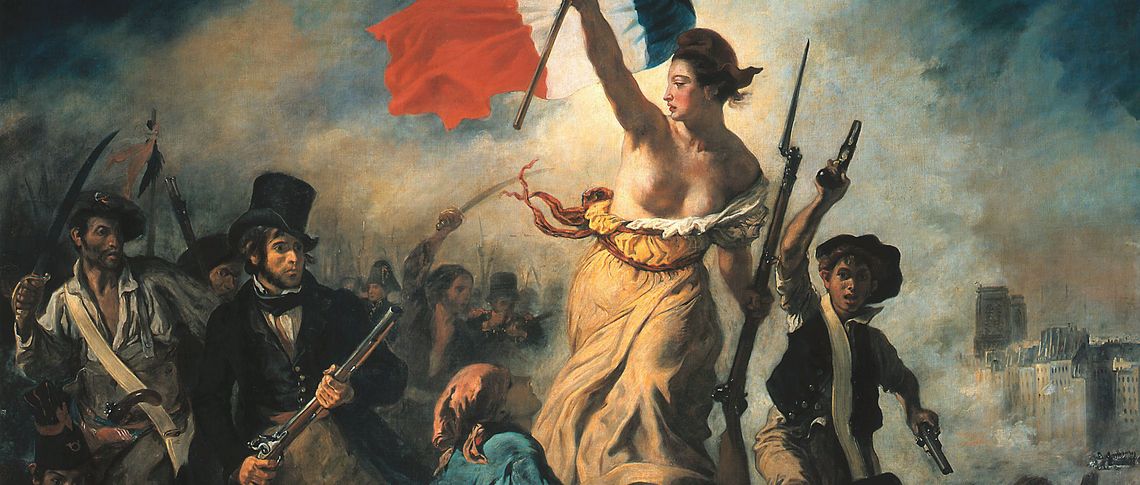It has become almost a reflex to say that democracy is ‘under threat’. But the deeper problem may be that democracy, as it currently exists, is not sufficiently adapting to meet the challenges of our globalised era.
Across Europe, the United States and much of the Global South, democratic systems are not working to redistribute power or opportunity — they often entrench initial advantages in resources to limit competition and participation, rather than ensure it. Citizens are told that democracy is the best system we have, but their lived experience tells a different story: security concerns, stagnant wages, unaffordable housing, diminishing public services, and the extreme concentration of resources and decision-making influence in the hands of a few. With the transnational privatisation of security and communication channels (from satellites to information), the very idea of a nationally sovereign state that can guarantee security and democratic governance to meet the needs of the citizenry is a fallacy.
The uncomfortable truth is that what we call ‘democracy’ today has become structurally incapable of addressing the very inequalities it helped create. Late-stage neoliberal extractive capitalism has hollowed out the redistributive core of democracy, transforming it into an accelerant of inequality rather than a counterweight to it.
Democracy today cannot fulfil its core functions reliably without renewal. Meant to be reimagined, to adapt, and to mediate conflicts among elites and between elites and the masses, it must evolve through deliberation, debate and participation — not remain captive to the status quo.
Tracing disillusionment
In democratic theory, we often rely on two core pillars of what constitutes a democracy: competition (of ideas, of representatives) and participation (full suffrage, and the rights and freedoms of information, association and expression necessary to be able to fully participate). But as Robert Dahl’s Polyarchy famously declared, the third pillar of democracy is that our preferences be weighted equally in the conduct of government. That is, democracy should offer equality of voice and representation. In practice, however, it is now a system where concentrated resource owners dictate policies to further block out competition in the market and in society, and citizens feel increasingly unrepresented.
For a long time, we were told that advanced industrial economies and high levels of development helped support democratic competition, participation and equal representation because it dispersed the economic resources needed for a robust opposition, independent civil society, and fostering the checks and balances to hold government accountable. But the rules of the game have been distorted to further entrench resource concentration. For example, the Citizens United judicial ruling (United States 2010) represented a turning point on campaign finance, allowing unlimited election spending by corporations, justifying it on the basis of corporations’ ‘right to speech’. This delivers outsized influence over politics and exponentially amplifies the voices of the uber-elite over ordinary citizens.
When citizens realise that even ‘change candidates’ cannot alter the distribution of power, they stop believing in the system itself.
Political parties and candidates often campaign on change, but once elected, they prove unwilling or unable, as they are shaped and constrained by the same global economic structures that locked in the previous status quo. Think of President Macron’s refusal to roll back tax cuts for the wealthy, or the inability of US administrations – of either party – to challenge the political and economic dominance of tech oligarchs who control not only communications but, increasingly, national security infrastructure. When citizens realise that even ‘change candidates’ cannot alter the distribution of power, they stop believing in the system itself. The centre collapses, and extremes on the right and left converge in their shared disdain for centrist technocracy.
This disillusionment isn’t just an emotional or narrative problem; it’s a structural one. The democratic promise of fairness through equal representation has been replaced by the logic of resource concentration.This limits political capacity to deliver governance outputs that create legitimacy for the democratic system as a whole: security, infrastructure, health care, quality education and social mobility, and public services, including clean water, land and air. The very systems meant to guarantee equality – taxation, public services, labour protections – have been weakened in the name of competition, but in service of uncompetitive market and political control. The result is democracy that redistributes upward.
Foundations of trust
It is no longer enough to say ‘democracy delivers better than any other system.’ For many, it simply hasn’t delivered sufficiently. The defence of democracy must focus on substance — a renewal of credibility through what political scientists call ‘input legitimacy’ and ‘output legitimacy’.
Output legitimacy refers to performance, whether a government delivers fairness, opportunity, and well-being. Input legitimacy is about participation, whether people feel heard and represented. These two forms of legitimacy are often in tension between participation and technocratic delivery. But they are deeply intertwined: when citizens do not see results, they must at least see pathways to accountability, feedback and correction. The self-corrective mechanisms of democracy – independent audits, freedom of information, public statistics, and the right to protest and organise – are not bureaucratic details. They are the foundation of trust.
But we must also be clear: democracy’s value cannot solely be reduced to what it delivers economically. There are moments of crisis, economic downturns, wars, ecological shocks, when democracy may not ‘perform’ in the short term. In such times, its real strength lies in preserving peace, upholding rights, and providing the possibility of future renewal through its capacity for self-correction.
For many, ‘democracy’ has come to mean hypocrisy: wars of ‘democracy promotion’ in Iraq and Afghanistan, selective international justice that punishes some while shielding others and Western double standards in the face of human rights abuses.
Even as democracy waxes and wanes in credibility, its core principles – rule of law, freedom, anti-corruption, expression – continue to resonate strongly in surveys across the world. What has failed is not the idea of democracy, but its branding and practice.
For many, ‘democracy’ has come to mean hypocrisy: wars of ‘democracy promotion’ in Iraq and Afghanistan, selective international justice that punishes some while shielding others and Western double standards in the face of human rights abuses. Within Europe and the United States, polarisation, institutional gridlock, and the inability to tackle climate change or declining public service provision have made democracy appear incapable of addressing today’s challenges.
Defending the democracy of the 1990s, the liberal order of free markets, privatisation and technocratic governance, is not the way forward. If democracy is to survive, it must be reimagined and restructured according to its core principles.
Art can critique the dominant forces in society in a way that we can hear, and catapult new ideas and needs from society into the political conversation, ultimately to reshape it.
What Europe needs now is not nostalgia, but reinvention. Democracy must become participatory again — not just in name, but in practice. Citizens must see that their voices and needs count, and that institutions can respond. Otherwise, the vacuum will continue to be filled by populists who promise power to the people but deliver only further power concentration and institutional destruction.
This participatory renewal means creating real feedback loops: citizens’ assemblies, participatory budgeting, local deliberation forums. It means investing in independent journalism, open data and civic education. It also means reclaiming the cultural imagination — using art, humour, storytelling and digital media to reconnect democracy with citizens’ visions of their imagined futures. From ‘news’ comedians like Jon Stewart to new ventures like the ‘Comedy Think Tank,’ humour and art can critique the dominant forces in society in a way that we can hear, and catapult new ideas and needs from society into the political conversation, ultimately to reshape it.
When asked what values matter most, citizens rarely name ‘democracy’ itself. They name freedom and fairness, opportunity and security. These principles are the living content of democracy. But they are also interdependent. Freedom without fairness becomes plutocracy. Fairness without opportunity becomes stagnation. Opportunity without security becomes precarity. Democracy’s renewal must therefore be built on a holistic vision of these values — a package that ties political freedom to economic justice, and social stability to civic participation. This is the space where social democracy, if it can reinvent itself, might once again lead.
The challenge of our time is not to protect the old system from its critics, but to transform it from within — to make it once again a vehicle for fairness, freedom and shared prosperity.
If democracy is to survive the 21st century, it must rediscover its reformative, self-corrective spirit. The answer to democracy’s crisis is not less democracy, but more — more real, more participatory, more equal. Because only when people feel that democracy works for them will they once again defend it.






